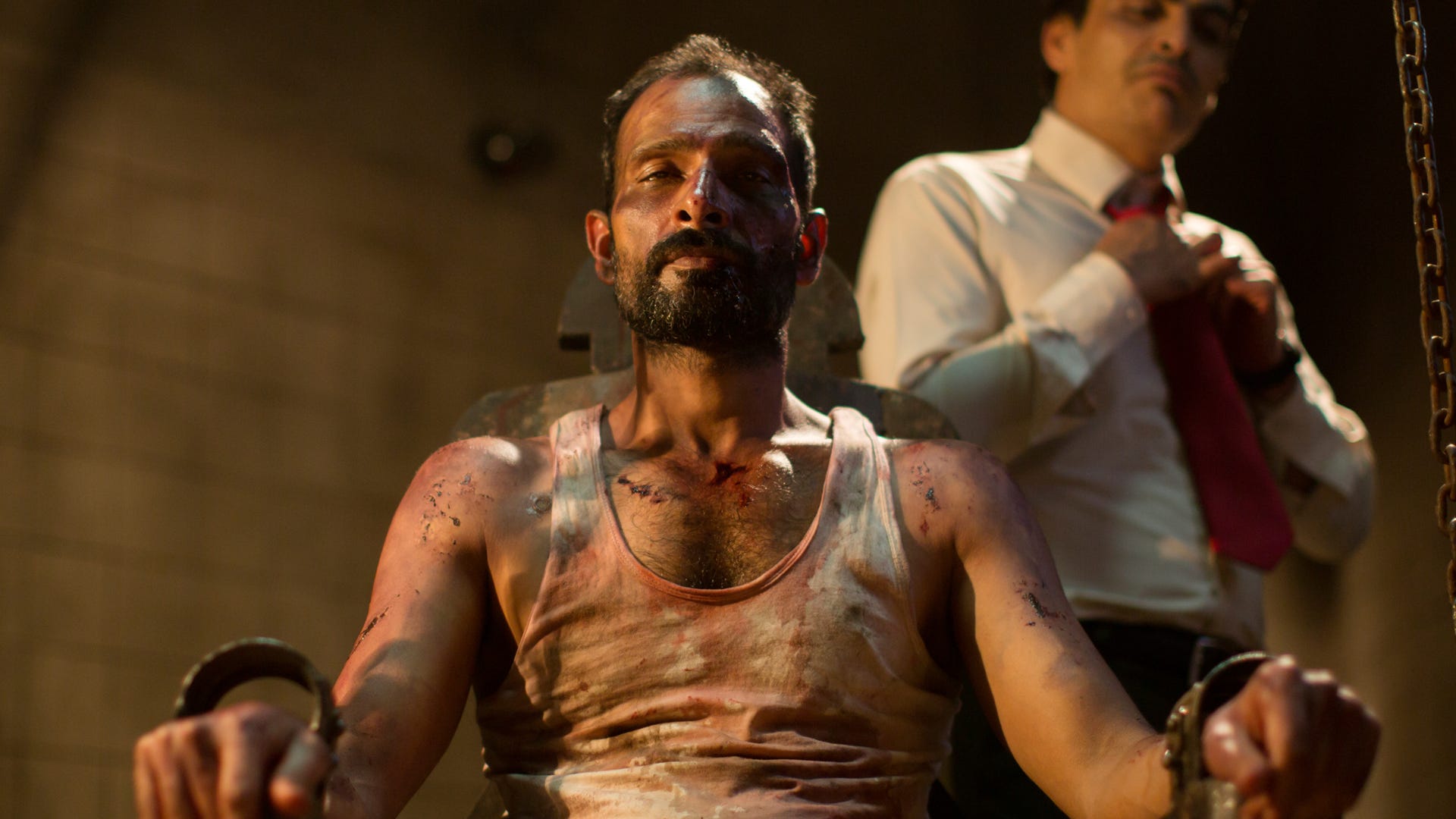Join or Sign In
Sign in to customize your TV listings
By joining TV Guide, you agree to our Terms of Use and acknowledge the data practices in our Privacy Policy.
Netflix Needs More Shows Like the Low-Commitment, High-Reward Ghoul
The Indian horror series is the perfect solution in the Peak TV era
Last weekend I binged an entire new show, and I'm pretty damned proud of that fact. But I'm even more proud of the fact that I still had time to play Paw Patrol with my daughter, used up my entire Saturday for a day trip out of town, got plenty of sleep all weekend, and never felt like I chained myself to a couch in order to finish what I had started.
That's because the series I watched was Ghoul, a new Indian import that could be a model for the future of Netflix. Ghoul is admittedly barely a series as it's only three episodes long, but unlike these other poseurs out there who hoard awards under the guise of being a "limited series," like American Horror Story or The Alienist or the blatantly fraudulent limited series Big Little Lies (Season 2? YOU LIED!), Ghoul is -- by every definition of the word -- a true miniseries. Three episodes. That's it. I watched one each day of the weekend and I was done. And it felt amazing.

Radhika Apte, Ghoul
Ishika Motawane/NetflixThough brief, Ghoul is a real trip that hits all the marks of a complete story with a beginning, middle and end. It's set in a dystopian future where a militant government does the usual oppression thing by curbing literature and free thinking while also demanding false patriotism. Disobey and you're punished. Follow the rules and you're promoted. A woman named Nida (Radhike Apte, who gets better and better with each passing minute until you're blown away with her performance by the end) is stationed at a detention center for rebels when resistance leader Ali Saeed (a stoically terrifying Mahesh Balraj) is brought in... then spooky things -- from hallucinations to straight-up murder -- begin to happen.
It's right there in the title, so it's not a spoiler to say that Ali is actually the Indian folklore take on a ghoul, a monster who can assume the form of the last victim's flesh it ate. Things get truly insane from there, including a final episode that is a gory, twist-filled extravaganza and one of the best hours you'll spend in front of a TV all year.
But Ghoul's strength is also in its brevity, and Netflix would be foolish to not employ its unique structure moving forward. After transforming itself with cable, streaming services, limited series and anthologies, television is already begging for another step in evolution, and Ghoul is it. We are absolutely inundated with new television each week -- FX's data-junkie CEO John Landgraf expects more than 520 scripted series to air this year with even more coming next year thanks to new streaming services from Apple and Disney -- that even a new 13-episode series (which used to be a cakewalk compared to broadcast's ridiculous 22-episode seasons) is daunting.
These Are the Best Young Adult Movies on Netflix

Mahesh Balraj, Manav Kaul; Ghoul
Ishika Motawane/Netflix
But a hybrid of television and film, like Ghoul, is perfect. Three (or so) episodes is enough to establish backstory to get you to care about the characters. The first episode of Ghoul doesn't have the same splash as the next two, but it's incredibly important to the payoff of the third episode. Showrunners for streaming series keep talking about making 10-hour movies with their projects, but guess what? Only masochists want to watch a 10-hour movie. A three-hour movie that's formatted as a short series? That's perfect. If I stop a movie halfway through, I'm lying to myself if I say I'll finish it up later, or when I do, the rhythm is all screwed up. Episodes give a viewing experience distinct starting and ending points. If you're enjoying yourself, you can fire up another and the committed can knock it out in one night and move on to the next thing in their queue. If you want to finish it the next day, you know exactly when to stop, and the writing allows for contained stories for each episode so the viewing experience is smoother when you return to it. (And no, I'm not saying all shows should be three episodes long. I'm saying we should stop stretching shows out to longer than they can handle.)
Ghoul was originally conceived as the first film of a trilogy before creator Patrick Graham found a giant lightbulb above his head and decided to turn it into a three-episode miniseries once Netflix got involved. I don't know if this was an experiment with format, if we'll see what Graham had in mind for the next two films or if they'll be turned into two more miniseries, but if Netflix does give us two more seasons of Ghoul, I'll be raring to go with both anticipation and calm knowing that no matter what happens, it can all be done in one relaxing weekend. It's rare to want more TV on your plate right now, but if this is how it's done, we'll be hungry for more.
Ghoul is currently airing on Netflix.
